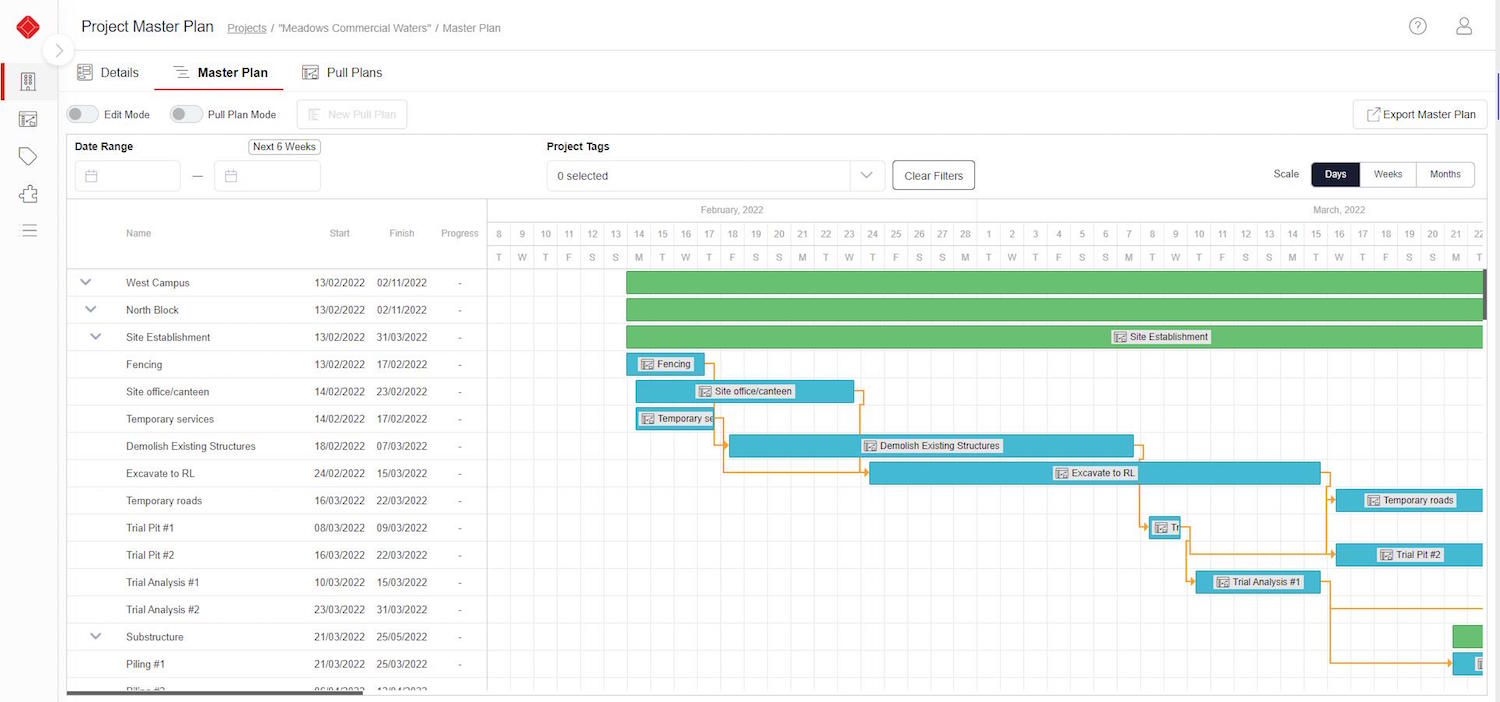
Lean scheduling and the solutions that enable it have the power to address many construction issues through improved communication, Luciana Kola suggests.
The construction industry is constantly looking for ways to become more efficient – whether that is changing materials, introducing smarter processes, or reducing waste. Yet promoting effective communications often takes a back seat to other business areas.
With some 91% of building professionals being involved in a delayed programme, and one-in-three saying better project management could have helped them to finish on time, lean scheduling solutions designed to promote healthy communication and empower decision-making within project teams are essential.
What is lean construction?
Aiming to optimise the flow of work, lean scheduling focuses on creating a reliable and predictable project schedule by eliminating non-value-added activities, reducing variability, and improving coordination among project stakeholders.

“It’s not uncommon for critical instructions to be written on a Post-it note and stuck to a cabin wall, even when construction companies use advanced software.”
It seeks to identify and eliminate bottlenecks, delays, and inefficiencies that can hinder project progress.
At its core, lean scheduling focuses on creating a reliable and predictable project schedule by eliminating non-value-added activities, reducing variability, and improving coordination among project stakeholders. It seeks to identify and eliminate bottlenecks, delays, and inefficiencies that can hinder project progress.
Ultimately, it helps to bridge the gap between strategic vision and daily reality, to stop miscommunications and inefficiencies affecting project progress. The building sector is still very manual at site level, with teams often mapping their workload on a whiteboard or spreadsheet.
It’s not uncommon for critical instructions to be written on a Post-it note and stuck to a cabin wall, even when construction companies use advanced software for high-level planning.
What are the main benefits?
By adopting a lean approach to project planning and management, construction companies can achieve the following:
- Smoother workflow, making it easy to move tasks around to optimise workflows and enhance productivity. Focusing on smaller project phases allows teams to make short-term commitments and stick to them while also providing the platform to adapt to change and minimise risks.
- Integrated design and build, helping construction companies to involve tradespeople at the design stage, so everyone is working towards the same objectives. There’s no more siloed working, which means fewer conflicts during execution.
- Contributing skills and knowledge – contractors using such solutions can suggest adjustments that help projects run quicker and stay within budget and reduce reworks.
- Flexible planning – project managers can choose whether to pull an entire phase of work, or break each stage into more detailed subsets. They can also add new activities and tradespeople throughout programme execution.
- Complete visibility, providing all team members access to the same information in real-time, so everyone is always on the same page. Stakeholders can also provide input and feedback at every project stage, minimising delays due to lack of communication.
- Secure, reliable information – critical instructions can’t just fall off a wall like a Post-it note or get wiped off a whiteboard. Lean scheduling stores information securely, while still giving team members access to data via their web browsers.
Lean construction’s true value
Investing in lean construction software is not just helping companies to work more efficiently: it’s increasing trust with their customers.
With no more disconnects between high-level planning and what’s happening on site, construction firms feel more confident that they can meet customer deadlines.
Lean construction solutions like Asta Connect also foster a stronger sense of teamwork. Through each pull plan, contractors make unified commitments, and digital task management promotes healthy conversation around removing the obstacles impacting productivity.
Ultimately offering numerous benefits that contribute to improved project performance, reduced costs, and enhanced stakeholder satisfaction.
Luciana Kola is UK marketing manager at Elecosoft.
Don’t miss out on BIM and digital construction news: sign up to receive the BIMplus newsletter.











